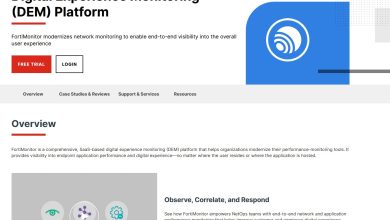
Many people would remember when the “Gig Economy” revolution started some years back, which virtually redefined how executives view corporate labor and the general market structure. The phenomenon also gave rise to more freelancers and small business managers on the market.
But what drove the Gig Economy? One of the many background factors that sustained – and still does – a freelance and small business model is social media, and by extension, the internet. It gave additional access to the intended audience and transcended the conventional channels for a client-provider relationship.
However, there is an evident need to understand how social media works for a business in general. It poses significant benefits for new and existing business owners. The article highlights some of the common social media concepts freelancers and small business owners would have to use.
Social media as a tool for exploits
Social media initially existed to create online communication- to send a message from one end, and receive a reply from the other end. The basic communication analogy is no longer enough in today’s world. You will have to probe further than that, especially if you run a small online business today.
However, the starting point is for you to understand the potentials the modern social media platform offers. More than just communication, social media can allow you into the minds of your target audience. You can understand patterns and behavior that enable you to deliver with an expected outcome.
From there, you can begin to utilize social media tools such as SEO, hashtags, and loop videos to unlock new dimensions to customer interactions for the business.
Social media as a source of new risks
On the other side of the coin, social media can threaten business entities, especially when they aren’t looking. Given the immense power social media platforms have, you can expect some byproducts to harm the business when not appropriately contained.
For example, information sharing: “The news spreads like wildfire,” they say, but news on social media spreads ten – if not a hundred – times as fast. It means that information about yourself and the business gets shared at a blinding rate, including the not-very-accurate ones.
Negative reviews, misinformation from you or elsewhere, goes wild when it gets online, and there’s not much to do to curb its impact. Also, social media exposes your business to stipulations and laws that are unheard of with traditional outfits. Running afoul of spam laws, copyright laws, and privacy regulations is just a few clicks away.
Overall, it would help if you realize social media’s vagaries to help you make contingencies for them.
How to use social media for business?
After understanding social media’s viability as a tool, the next step is to begin to use it effectively. You will be more concerned about the proper integration between the business and social media for a more optimized output for existing models. Below are some of the ways to include social media in small business management.
1. The Publicity
Perhaps the first use of social media in any business is to create awareness about their existence. It follows the logic that the customer must get to know the brand before interacting with the brand.
Furthermore, social media publicity also gives you a chance to prove your worth on the market. You can use social media platforms to put out information about the things you can do and how you think you can do it better than anyone else.
Beginning the business’s social media journey from publicity gives an early advantage, as you can begin to reinforce a reputation while working towards meeting your business’s objectives in the industry.
2. Content Creation
Social media publicity and social media content are similar, with crucial differences. Content creation is the base for all interaction points for a business on social media, but it goes further. Content creation allows you to fire on when you’ve grabbed the attention and created awareness. It enables you to drive home your business’s essence to your audience repeatedly.
3. Conversion Strategy
Beyond garnering a follower base online, a business can only prosper when the growing base translates to more customers. At least, it justifies the resources expended on social media integrations.
The key is to employ the most cost-effective way to drive a percentage of the potentials to take action. An excellent conversion strategy is the referral system, which involves the business imploring potential customers to take the step, using several successful customer stories as the hook.
4. Useful Complimentary Tools
For more prominent companies, employing social media strategies wouldn’t be an arduous venture, especially when they can dedicate a significant portion of their resources. However, freelancers and small business owners would have to settle for more cost-effective options.
Thankfully, there are software tools that deliver the needed functions at a conducive budget. It also presents the benefit of improving the efforts of the business using social media. For instance, SEO tools track keywords and carry out quantitative analysis on social media platforms the company might be using, helping you have concrete visibility of your social media activities’ performance.
Furthermore, complimentary social media tools improve the overall productivity of the business on social media. Since there is a shadowy line between business and non-business content online, time tracking software enables you to focus on the most critical segments within the set time.
An option such as todoist time tracking offers a standard time tracking service promising small business managers and freelancers a firmer grip on their time management.
Final thoughts
As an extension of the internet, social media has had an immense impact on emerging businesses and freelancers in the last few years. The edge comes from the extent to which you understand how social media can work for you.
As mentioned above, the tips shed light on the fundamental purposes of social media platforms, as they affect new and existing business managers. How far do you think social media should go to a business? Sound off in the comment section below. If you’ve got opinions, questions and experiences, you are welcome to share them as well.




